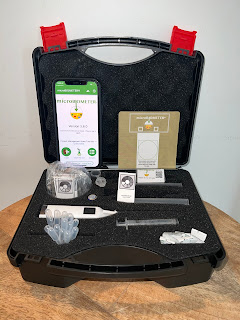How To Turn Your Smartphone Into A Soil Lab
Remember when you needed expensive equipment just to know what's happening in your soil? Well now that same device you use to scroll social media and read the news can analyze soil health with lab-quality precision. The Science Behind Your Pocket Soil Lab Your smartphone possesses something laboratories have relied on for decades: sophisticated optical sensors and powerful processing capabilities. Modern smartphones can detect color variations, light intensity, and chemical reactions through their cameras and built-in sensors. When paired with the right testing reagents and apps, these everyday devices transform into legitimate soil analysis tools. The principle is surprisingly straightforward. Soil samples react with specific chemical reagents, producing color changes that correspond to different nutrient levels, pH values, or biological activity. Your phone's camera captures these color variations, while specialized algorithms interpret the data and provide inst...




